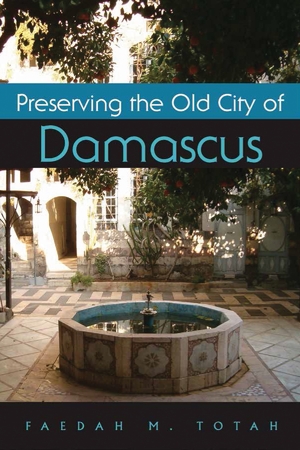"A highly revealing and engagingly written exposé on the powerful role of heritage in the construction, negotiation, and manipulation of cultural identity and cultural memory."—American Anthropologist
"Rich ethnographic data offering intimate insights into everyday life in pre-war Damascus make Preserving the Old City of Damascus a must-read not only for scholars working on identity, heritage, or urban change in the Middle East, but also for everyone with an interest in the Syrian capital."—Urban Geography
"The author’s sensitive and empathetic approach allows readers to appreciate how the complex interaction of investment capital, government policy, and local cultural attitudes influences the process of urban change in Damascus’s old historic neighborhood."—Choice
Description
One of the oldest continuously inhabited cities in the world and a major cultural and religious center, Damascus is a repository of numerous civilizations, ancient and modern, that embody the collective national as well as Arab/Islamic memory. Although a protected UNESCO World Heritage Site since 1979, the Old City attracted the interest of investors only toward the end of the century. The historic center of greater Damascus became the focus of private investment when the government implemented economic reforms geared toward globalization. Distinguished from other neighborhoods by the large number of religious buildings, historic monuments, and a wall with foundations in the Roman period, the Old City is important for government efforts to promote heritage tourism as part of the country’s entry into the global economy.
In Preserving the Old City of Damascus, Totah examines the recent gentrification of the historic urban core of the Syrian capital and the ways in which urban space became the site for negotiating new economic and social realities prior to the civil war. The book illustrates how long-term inhabitants of the historic quarter, developers, and government officials offer at times competing interpretations of urban space and its use as they vie for control over the representation of the historic neighborhoods. Based on over two years of ethnographic and archival research, this book expands our understanding of neoliberal urbanism in non-Western cities.
About the Author
Faedah M. Totah is assistant professor in the Political Science Department at Virginia Commonwealth University.
Series: Contemporary Issues in the Middle East
6 x 9, 336 pages, 15 black and white illustrations, 1 maps
May 2014

